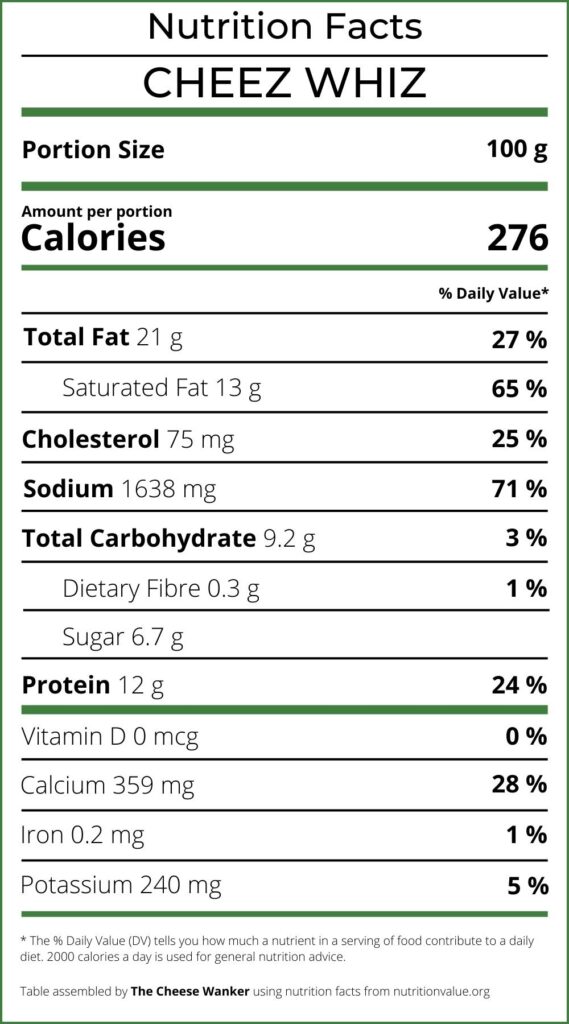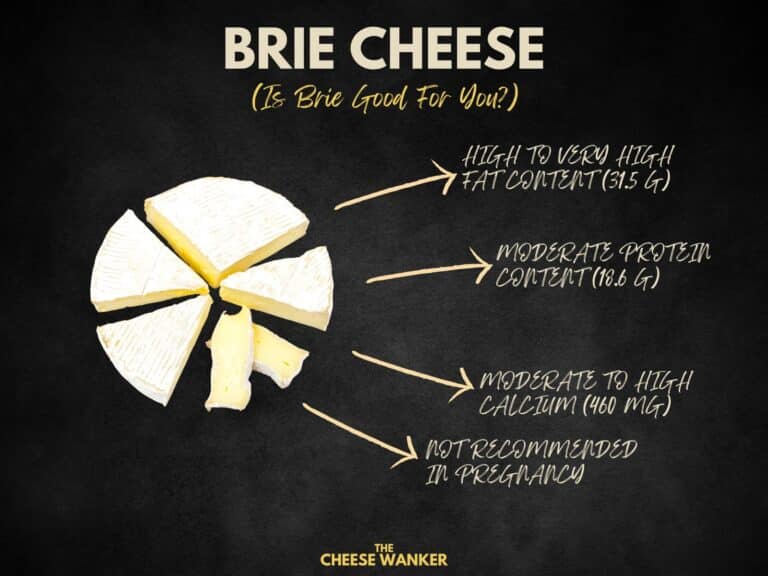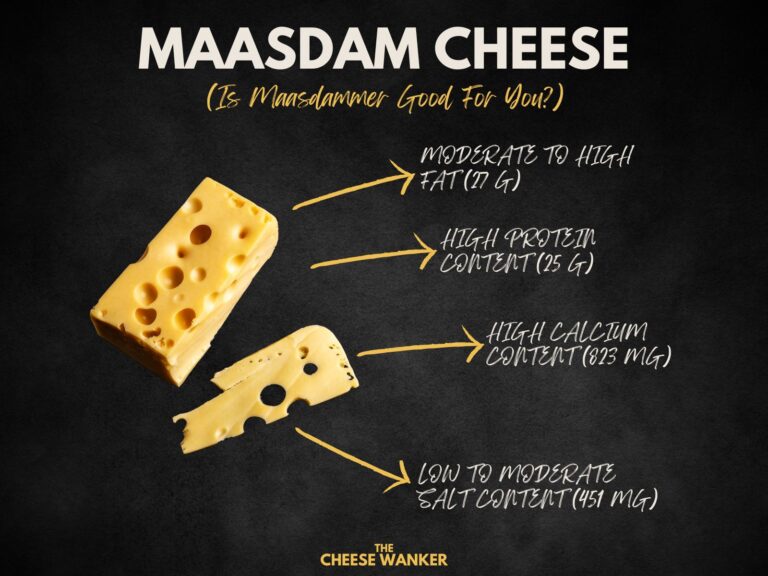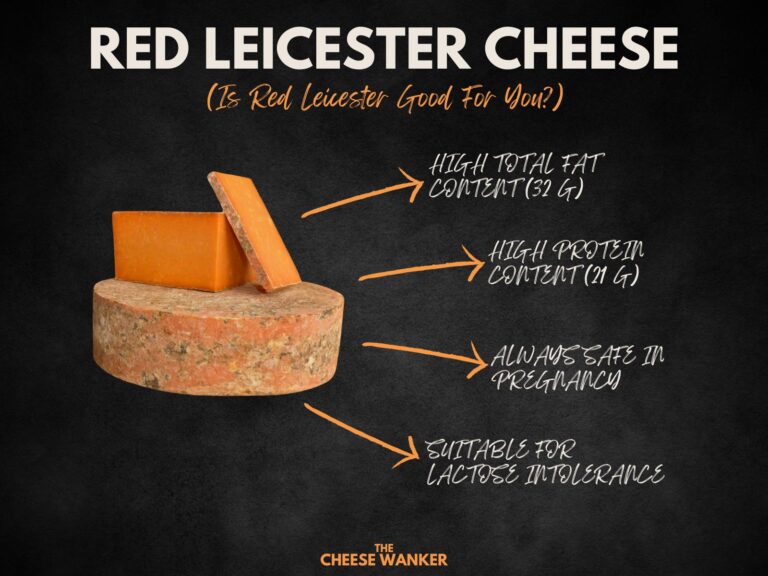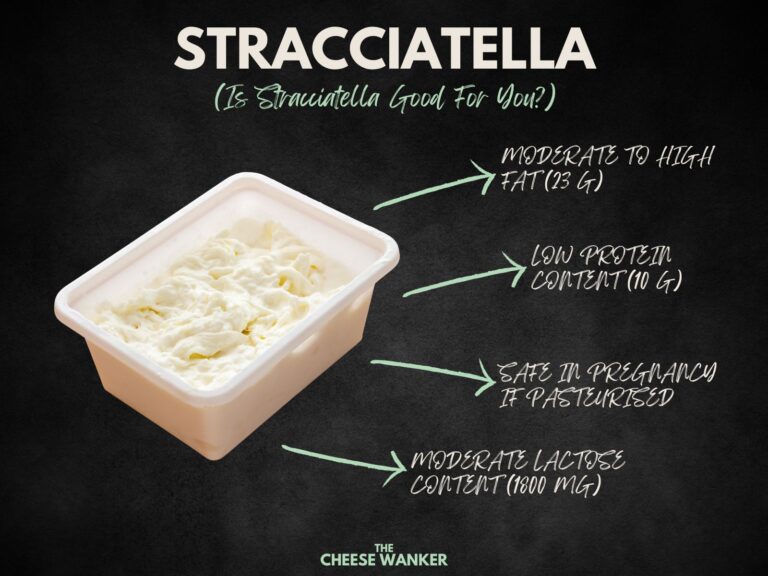Cheez Whiz, a popular processed cheese spread, has found its way into countless households across the USA. But what exactly is in this product? In this blog post, we’ll delve into the nutrition facts of Cheez Whiz, exploring its lactose content, safety in pregnancy and more.
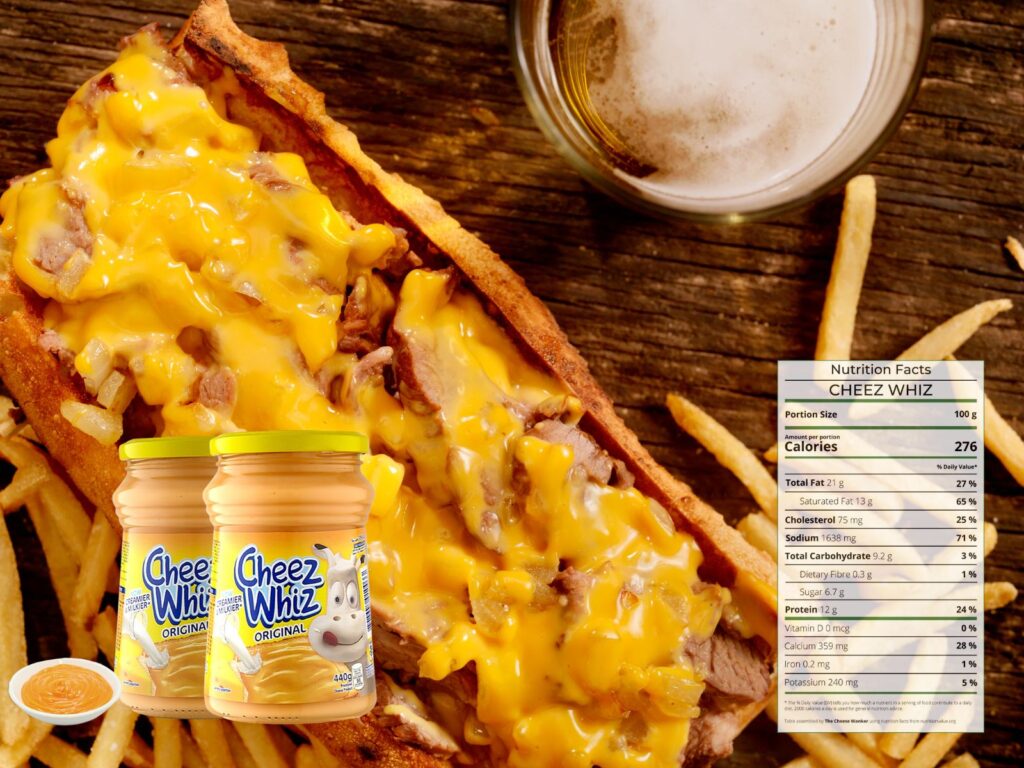
SEE ALSO: Nutrition facts for popular world cheeses in The Cheese Wanker’s index →
What is Cheez Whiz?
Cheez Whiz is a processed cheese spread known for its smooth, creamy texture and distinctive flavour. It is typically made from a blend of cheese, milk solids, emulsifiers, stabilizers, and other additives.
As a matter of fact, this gooey orangish-yellow spread dates back to the early 1950’s when it was first developed by a team of scientists led by Edwin Traisman. At the time, Kraft wanted to develop a mild cheese spread that would replicate some of the qualities of the spread used in Welsh rarebit.
Presently, you can buy Cheez Whiz in the USA, Canada, Mexico, the Philippines and Venezuela. And it is most often sold in a glass jar.
You can learn more about this popular American spread in our Cheez Whiz Cheese Definition Test here.
Nutrition fact sheet
Country of origin
United States of America
Type of Cheese
Processed Cheese Spread (Not actually cheese)
Milk
Cow (Pasteurised), Other Milk Derived Ingredients
Examples
Cheez Whiz Original, Tex Mex, Italia, Bacon, Pimiento
Safe
Avoid
Milk Protein Intolerance, Pregnancy*, Low Sodium Diet, Keto Diet
Nutritional review for Cheez Whiz
Eating healthy plays a pivotal role in maintaining overall well-being and preventing chronic diseases. A balanced and nutritious diet provides our bodies with essential vitamins, minerals, and macronutrients, fuelling optimal physical and cognitive function.
With this in mind, let’s have a look at some of the key nutrition facts for Cheez Whiz.
Lactose Intolerance
For individuals with lactose intolerance, the question arises about the suitability of Cheez Whiz. The good news is that this cheese spread is generally considered safe for those with lactose intolerance.
During the manufacturing process, most of the lactose present in the original milk is broken down, resulting in a lower lactose content in Cheez Whiz. However, individuals with severe lactose intolerance should still exercise caution and monitor their tolerance levels.
Fat Content
Transitioning into its fat content, Cheez Whiz is relatively high in saturated fats due to the cheese and milk solids used in its production. It is essential to consume this product in moderation, especially for individuals watching their fat intake to maintain a balanced diet.
Opting for real cheese can be a healthier choice for those looking to cut down on saturated fats.
You can learn more about the different types of fat in cheese and which cheeses have the lowest fat content here.
Cholesterol Content
Cheez Whiz contains cholesterol due to its dairy-based ingredients. While dietary cholesterol may not significantly impact blood cholesterol levels for most people, those with specific cholesterol concerns should be mindful of their intake.
As part of a balanced diet, small amounts of Cheez Whiz can still be enjoyed without causing adverse health effects.
Protein Content
When it comes to protein, Cheez Whiz provides a much smaller amount than real cheese. While not a primary source of protein, it can contribute to one’s daily protein intake.
However, individuals seeking high-protein options should explore alternative sources.
Want to find out which cheeses have the highest protein content? Click here for our blog post covering cheeses with the highest protein content.
Safety in Pregnancy
Pregnant women often wonder if Cheez Whiz is safe to consume during their gestation period. Technically speaking, this processed cheese spread has a very low risk of listeria contamination.
However, its overall nutritional profile is fairly poor. As such, most health professionals would not recommend the consumption of Cheez Whiz during pregnancy.
Of course, if you’re unsure of what you can eat during pregnancy, you should consult your healthcare professional to get a personalised plan. You can read more about which cheeses you can eat when you’re pregnant by clicking here.
Salt Content
Furthermore, Cheez Whiz contains an exceptional amount of salt. Indeed, a 100 g serving of this spread will contribute more than 1600 mg sodium to your diet. This equates to more than 70% of the daily recommended intake.
Excessive salt consumption can lead to health issues such as hypertension, so it’s crucial to moderate intake and be mindful of overall sodium levels in the diet.
Opting for lower-sodium cheeses can help mitigate potential health risks.
You can read more about why salt is important in cheesemaking in our comprehensive post here.
Calcium Content
On a positive note, Cheez Whiz can be a source of calcium, which is essential for maintaining healthy bones and teeth.
However, it is important to remember that it may not provide as much calcium as natural, unprocessed cheese. Individuals relying on Cheez Whiz as their primary calcium source should consider incorporating other calcium-rich foods into their diet.
Conclusion
In conclusion, Cheez Whiz offers a convenient and flavourful cheese spread option, making it a popular choice in many households. While it contains moderate levels of fat and cholesterol, it can be enjoyed as part of a balanced diet.
Additionally, its relatively low lactose content makes it suitable for most individuals with lactose intolerance.
However, pregnant women should avoid this product because of its overall nutritional profile. In addition to this, due to its salt content, it’s wise to consume this product in moderation.
As with any food, balance is key, and incorporating small amounts of Cheez Whiz into a varied diet can add a touch of cheesiness to life without compromising overall nutritional goals.
References
Overall nutritional content
The nutritional content of cheese in our table comes from the USDA Food Data Central Repository, the Australian Food Composition Database and cheese manufacturers. We realise that there can be variations between different brands and producers. Hence, the numbers we have used are averages.
Fat content
Our fat RDI data comes from Cleveland Clinic’s Healthy Fat Intake resource.
Type of fat in cheese as per Harvard T.H. Chan’s The Nutrition Source.
Protein content
Our protein RDI data comes from Harvard Medical School’s Harvard Health Publishing.
Cholesterol content
Is There a Correlation between Dietary and Blood Cholesterol? Evidence from Epidemiological Data and Clinical Interventions? – Maria Luz Fernandez and Ana Gabriela Murillo
Saturated fat, carbohydrate, and cardiovascular disease – Patty W Siri-Tarino, Qi Sun, Frank B Hu and Ronald M Krauss
Effect of cheese consumption on blood lipids: a systematic review and meta-analysis of randomized controlled trials – Janette de Goede, Johanna M Geleijnse, Eric L Ding, Sabita S Soedamah-Muthu
Safety in pregnancy
All the advice relating to what cheeses you can eat during pregnancy in this article is based on the recommendations by health authorities in Australia, the UK and the USA. If you are unsure about what you can or cannot eat, please consult your doctor.
Australia – FSANZ, United Kingdom – NHS and United Sates of America – FDA
Lactose content
Lactose residual content in PDO cheeses
Detection of lactose in products with low lactose content
The analysis of lactose in milk and cheese products by HPLC
Food Standards ANZ Food Composition Database
Lactose & Galactose content of cheese
